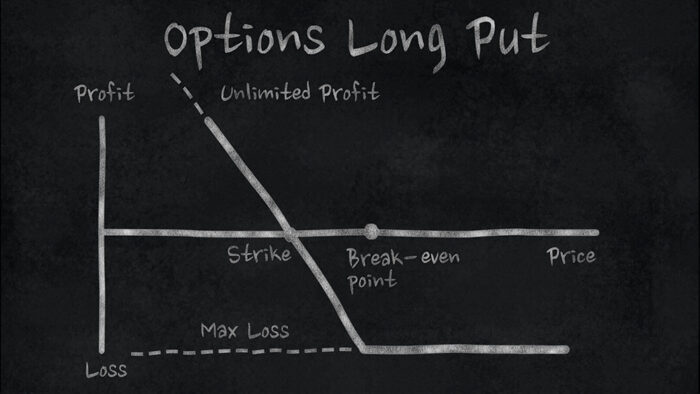By: subSPAC
EXECUTIVE SUMMARY
- This week, space launch company Virgin Galactic’s funding woes escalated as emergency talks with potential investors fell through.
- As a result, the company announced a staggering 85% workforce reduction and paused operations until further funding is secured.
- Since going public in 2021 with a $3.7 billion valuation, Virgin Orbit’s value has plummeted by 99% as of its last close, highlighting the realities of space investing.
DETAIL
This week, space launch company Virgin Galactic’s funding woes escalated as emergency talks with potential investors fell through. As a result, the company announced a staggering 85% workforce reduction and paused operations until further funding is secured. Since going public in 2021 with a $3.7 billion valuation, Virgin Orbit’s value has plummeted by 99% as of its last close, highlighting the realities of space investing.
This development contrasts sharply with the positive sentiment that prevailed around space-focused SPACs in 2021 and 2022 when these companies were praised for their potential to advance the space industry. As we venture further into 2023, what does the future hold for these space-focused companies? What can investors expect in terms of winners, losers, and overall prospects in this rapidly evolving industry?
Bursting The Space Bubble
The space industry has experienced several setbacks, with the majority of losers being space launch and tourism-focused companies. Virgin Galactic, a commercial space tourism company, went public through a SPAC more than three years ago, setting the trend for nearly two dozen space-related companies that have since raised over $5 billion from public markets. However, while the company received much fanfare when it debuted and subsequently launched its first spaceflight with Richard Branson onboard, sentiment has quickly turned. The pessimism isn’t limited to Virgin Orbit alone but has spread across space launch companies, with shares, on average, declining between 70% and 80% due to a myriad of factors.
The fastest pace of rate hikes by the Federal Reserve, and a challenging investment environment (with space investments down 58% YoY in 2022 compared to the previous year), primarily in late-stage companies and public markets, have all contributed to the downturn. Additionally, shareholders have found out that development-stage space companies with high CapEx for R&D (similar to most failed EV companies) may not be a good fit for public markets. Furthermore, the financial projections for these firms were often based on ambitious technical milestones, with only one or two being able to meet their original projections.
Fee-driven investment bankers led companies astray by building comp tables and valuation models that were inherently flawed. As a result, many space-focused companies have struggled to deliver on their promises and achieve their goals, leading to significant losses for their investors. Space launch-focused companies have faced tight timelines, limited capital, and expensive mistakes, which have further complicated their prospects. A great example of this is launch operators Astra Space and Momentus.
Astra suffered a second launch failure in 2022, which cost the first two NASA TROPICS cubesats designed to study hurricanes. This failure led Astra to cancel its Rocket 3.3 launcher in August and transition to a next-generation launch system called Rocket 4. Similarly, Momentus faced issues with its first test flight of a commercial orbital transfer vehicle, the Vigoride 3 space tug, launched on SpaceX’s Transporter 5 rideshare mission in May. The company reported problems with the spacecraft’s solar panels, causing their confidence in completing the demonstrations to “substantially decline.”
The High Flyers
While space launch and tourism-focused companies have struggled, the early winners of the space economy appear to be those that leverage the CAPEX spent by launch companies to boost their own businesses. This includes space data providers such as Planet Labs and BlackSky, as well as space infrastructure companies like Redwire. Planet Labs recently reported impressive financial results, with a 43% YoY revenue increase in Q4 and a 15% growth in its customer base. For the full fiscal year, the company expects revenues to grow by 35% and maintain strong gross margins of between 57%-61%.
BlackSky also had a successful 2022, winning up to $1.3 billion in multi-year contracts, nearly doubling revenues to $65.4 million, and demonstrating significant margin performance. This strong execution has put the company on track to achieve positive adjusted EBITDA in Q4 of 2023. Similarly, Redwire said that it had trimmed losses in the most recent quarter while also nearly doubling its order backlog (from $220 million to $465 million). The company also anticipates revenues to grow 40% from 2022, reaching between $220 million and $250 million this year.
Lunar Limbo
While the winners and losers of the space economy are clear, there are still those that continue to see mixed success since going public. A prime example is AST SpaceMobile, which has partnered with several telecom operators, including AT&T, Vodafone, and Rakuten. Despite these partnerships, the company has faced multiple delays in launching its BlueBird satellites, now targeting a 2024 launch. Space launch company Rocket Lab has progressed both technologically and commercially, distinguishing itself from many other launch companies.
The company’s order book doubled to $503 million at the end of 2022, more than double the previous year. Rocket Lab has also made strides in developing its Neutron rocket, which aims to compete with SpaceX’s Falcon Heavy and upcoming Starship rocket. However, Rocket Lab’s path to profitability could be severely constrained by the development of its Neutron rocket. To compete effectively, the company must price the rocket competitively, anticipating a price range between $50 and $55 million to undercut SpaceX’s $67 million pricing.
Most space companies that went public through SPACs have shown mixed success, highlighting their uncertain future.
Bottom Line
After much fanfare on its debut, many space-focused SPACs have failed to live up to the promise. Some of this is mostly down to the challenging public market conditions and the high cost of operations initially. It is becoming increasingly apparent that certain operating models, such as space data providers, are more scalable and profitable compared to others, like space launch and tourism-focused companies.
The industry might also witness a wave of consolidation through M&A and distress sales as companies face financial and operational challenges. This could reshape the space economy landscape, with stronger players emerging and underperforming businesses being absorbed or discontinued. Ultimately, the space industry’s future will likely be defined by companies that can adapt to market conditions, leverage efficient operating models, and capitalize on growth opportunities.
—
Originally Posted April 2, 2023 – Space Race Reality Check
Disclosure: Smartkarma
Smartkarma posts and insights are provided for informational purposes only and shall not be construed as or relied upon in any circumstances as professional, targeted financial or investment advice or be considered to form part of any offer for sale, subscription, solicitation or invitation to buy or subscribe for any securities or financial products. Views expressed in third-party articles are those of the authors and do not necessarily represent the views or opinion of Smartkarma.
Disclosure: Interactive Brokers
Information posted on IBKR Campus that is provided by third-parties does NOT constitute a recommendation that you should contract for the services of that third party. Third-party participants who contribute to IBKR Campus are independent of Interactive Brokers and Interactive Brokers does not make any representations or warranties concerning the services offered, their past or future performance, or the accuracy of the information provided by the third party. Past performance is no guarantee of future results.
This material is from Smartkarma and is being posted with its permission. The views expressed in this material are solely those of the author and/or Smartkarma and Interactive Brokers is not endorsing or recommending any investment or trading discussed in the material. This material is not and should not be construed as an offer to buy or sell any security. It should not be construed as research or investment advice or a recommendation to buy, sell or hold any security or commodity. This material does not and is not intended to take into account the particular financial conditions, investment objectives or requirements of individual customers. Before acting on this material, you should consider whether it is suitable for your particular circumstances and, as necessary, seek professional advice.




















